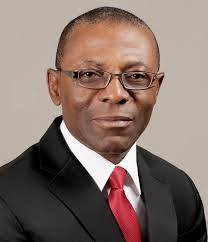Stakeholders Call For Independence Of Auditor General Office — Economic Confidential
Stakeholders Call For Independence Of Auditor General Office
Stakeholders in the accounting sector have called on Federal government to grant Office of the Auditor General of the Federation full independence so as to discharge his constituted duties without undue inference.
This is as a civic organization fostering public accountability in Nigeria, Paradigm Leadership Support Initiative (PLSI) has revealed that N9.7bn is yet to be accounted for from 32 projects spread across the country.
The call was made at a one day sensitization workshop on key findings on data from 2017 Audit Report of the Federation.
The stakeholders argued that it us only when the Auditor General Office is granted full autonomy that it can properly monitor and check leakages in management of public fund.
In its latest publication titled “Value for Money Handbook – Issue 2″, PLSI provided summary and simplified analysis of audited developmental projects captured in the 2017 Audit Report of the Federation of Nigeria.
The organization stated that while 32 projects worth N17bn meant for implementation in 17 states of the federation including the Federal Capital Territory were awarded to various contractors, about N9.7bn is not accounted for.
The organization also disclosed that the unaccounted funds when compared to similar publication on the 2016 Audit Report of the Federation showed an increase of N6.8bn (70.1%), an indication that accountability in the utilization of public funds in Nigeria is getting worse.
Speaking on the report, the Executive Director, PLSI, Olusegun Elemo said that “Nigerians Must commit to ensuring that public funds are not just spent but also properly accounted for.
Elemo, who expressed disappointment on the recurring and flagrant disregard for public procurement act and financial regulations of Nigeria, wondered why Nigerians were not asking questions about how the 13trn budget proposed for 2021 will be efficiently, effectively and economically utilized?, considering the huge scam that characterized previous budgets.
Recall that the President Buhari last Thursday laid before the National Assembly the 2021 budget estimate of more than N13tn.
He quarried the justification to continue to spend without adequate audit mechanism and wondered how we use a 1956 Audit Act to evaluate a 2020 budget, describing it as completely unreasonable and the source of the problem.
For him, the Act remains the foundation of lack of Accountability in managing public funds in Nigeria, saying that ‘‘what young people are protesting about today is not just the failure of the policing system but the failure of an entire democratic culture that continues to keep young people under with no jobs, quality education, health care and efficient infrastructure system.
As a way forward, Olusegun conversed for empowerment of the Office of the Auditor General for the Federation for him to play more effective role.
“We need to empower the Office of the Auditor-General for the Federation to play a more effective role in ensuring that public funds begin to work for citizens and particularly the young people.
‘‘Nigeria requires urgent reforms in different sectors of our national life and one of such is Audit Reform. Similarly, as the Auditor-General tor the Federation clocks the retirement age prescribed by law by end of October 2020, it is imperative to state that such crucial office should be tenure based as best practice requires rather one limited by age.
‘‘It is equally important that we implement the succession plan as provided for in section 86 of the 1999 constitution as amended. There must also be every effort to ensure that the Office of the Auditor-General for the Federation is not subject to the control of any authority or person as enshrined in section 85(6) of the 1999 constitution as amended,’’ he said.
He then called on the Executive arm to work harmoniously with the National Assembly in accelerating the passage and assent to a modern audit law for Nigeria”.
He reinstated the commitment of PLSI in working very closely with all relevant institutions and agencies of government particularly the National Assembly Public Accounts Committees and Anti-Corruption Agencies to ensure that all public funds highlighted in our “Value for Money Handbook Issue 2″ are adequately accounted for to improve service delivery to citizens”.
Representative of Fiscal Responsibility Commission, FRC, Charles Abana called for proper monitoring of projects and constant review of their execution.
Abana, who deplored the high level of wastages in management of public finance wondered why the higher institutions in the country do not publish their audited accounts for accountability.
According to him, the anti-corruption agencies are overwhelmed with the volume of work on their hands and called for collective effort in the fight against wastage of public funds.
He charged Nigerians to hold their leaders more accountable to be able to fix the infrastructure deficit.
‘‘We must decide to end the culture of impunity and make samples with some people in the fight against corruption. It is important that the Office of the Auditor General of the Federation is equipped and be given more independent to be able to curb this menace,’’ he said.


